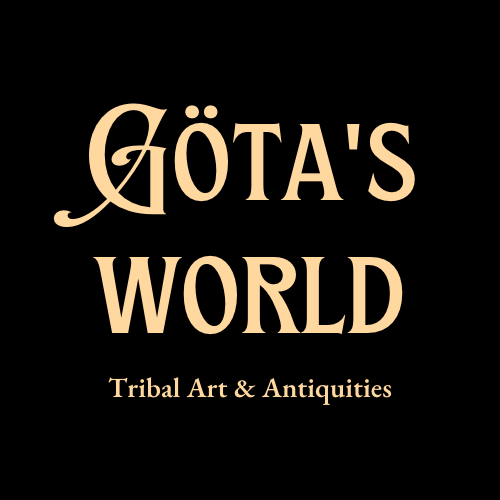Dani Tree-Bark Fibre and Cowrie Shell Currency Band (Jetak)
Dani Tree-Bark Fibre and Cowrie Shell Currency Band (Jetak)
Couldn't load pickup availability
Dani people, early to mid-20th century, Baliem Valley, Irian Jaya (Papua), Indonesia
Striking and finely hand-knitted jetak (also known as jerak), composed of tree-bark fibre with a continuous row of cowrie shells (93 total) meticulously sewn along one side. Traces of cuscus fur tufts remain adhered along the surface, and portions of the fibre band show black plant-based pigment. Dani jetak bands were often further embellished with Job’s tears seeds (Coix lacryma-jobi), orchid fibres, feathers, and cuscus fur to increase their aesthetic and ceremonial value.
Cowrie shell bands served as an important form of wealth: they functioned as currency, acted as ceremonial transfers of value, and were used to assess the worth of pigs—determining compensation and payment. Pigs are the paramount symbol of wealth among the Dani and their most prized source of protein. Jetak bands were also exchanged as ritual offerings during funeral ceremonies, marking social bonds and obligations between families.
The Dani inhabit the central highlands of Western New Guinea, within the Baliem Valley of Papua, and are among the most populous groups in the region, related closely to the Yali, Moni, and Lani peoples. Contact with the outside world began only in the late 1930s, with the Dutch establishing their first colonial post in the valley in the mid-1950s.
Before outside influence, the Dani lived as agriculturalists, hunters, and gatherers and practiced an animist belief system centred on land and water spirits. Special concern was given to the potentially dangerous ghosts of the recently deceased. The Dani conceive of a vital soul-substance known as “seeds of singing” (edai-egen), understood to pulse beneath the sternum. Illness or injury causes it to retreat toward the spine, requiring heat and curing ceremonies to coax it forward again. At death, it becomes a ghost (mogat), which must be ritually encouraged to leave for the forest to avoid harming the living.
Until the 1960s, before metal tools were introduced, Dani implements were made from stone, bone, pig tusk, wood, and bamboo. Stone was used for axes (kapak) and adzes. Without pottery, the Dani used gourds to carry water. Traditional attire consisted of the penis sheath (koteka) for men—sometimes accompanied by feathers, cowrie shells, pig tusks, or a hair net—and grass skirts (sili) for unmarried women, while married women wore fibre coil skirts (yokal) or seed-strung skirts that draped below the abdomen.
Dani craftsmanship is notable for its woven rattan bracelets (sekan), arm and headbands (milak), cowrie, feather, and bone necklaces (mikak), and head ornaments incorporating pig tusks (suale). Wealth items include polished oblong stones (ye), slabs of salt, and the iconic hand-knotted tree-bark fibre bags known as noken or bilum.
The making of noken involves cutting branches, stems, or bark from selected trees or shrubs, heating them over fire, soaking them, and then stripping out the usable fibres. Once dried, the fibres are spun into strong string and—sometimes after dyeing with natural pigments—knotted by hand into various forms. The technique demands mastery, patience, and months of practice.
This jetak is an exceptional example of Dani fibre artistry and traditional wealth systems, displaying early materials, refined workmanship, and superb ethnographic authenticity.
Good condition. Wear commensurate with age and use. Fraying to terminal ends. Missing fur tufts. Size approx. 240,0cm x 2,0cm x 1,0cm.
Provenance: From a Dutch private collection; reportedly originally from the holdings of a now-closed ethnographic museum and foundation in the Netherlands.
References and further reading:
Encyclopedia of World Cultures, Oceania, Karl Heider, edited Terence Hays, G.K.Hall & Company, 1991.
Wealth Items in the Western Highlands of West Papua, Anton Ploeg, Ethnology, Vol.43. No.4 (Autumn 2004), pp. 291-313.
Papua blood: An account of West Papua, Peter Bang, BoD, 16 Apr 2018.
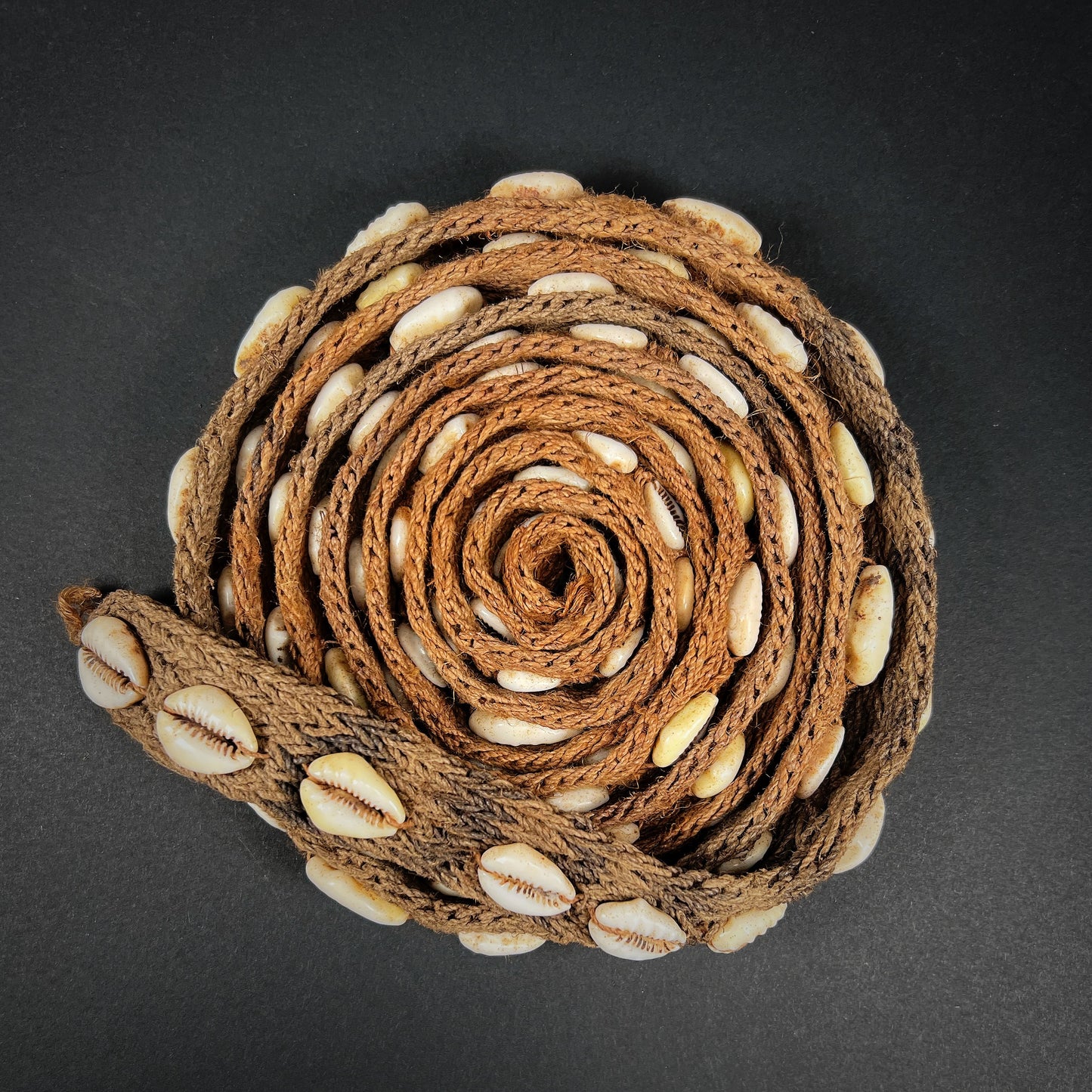
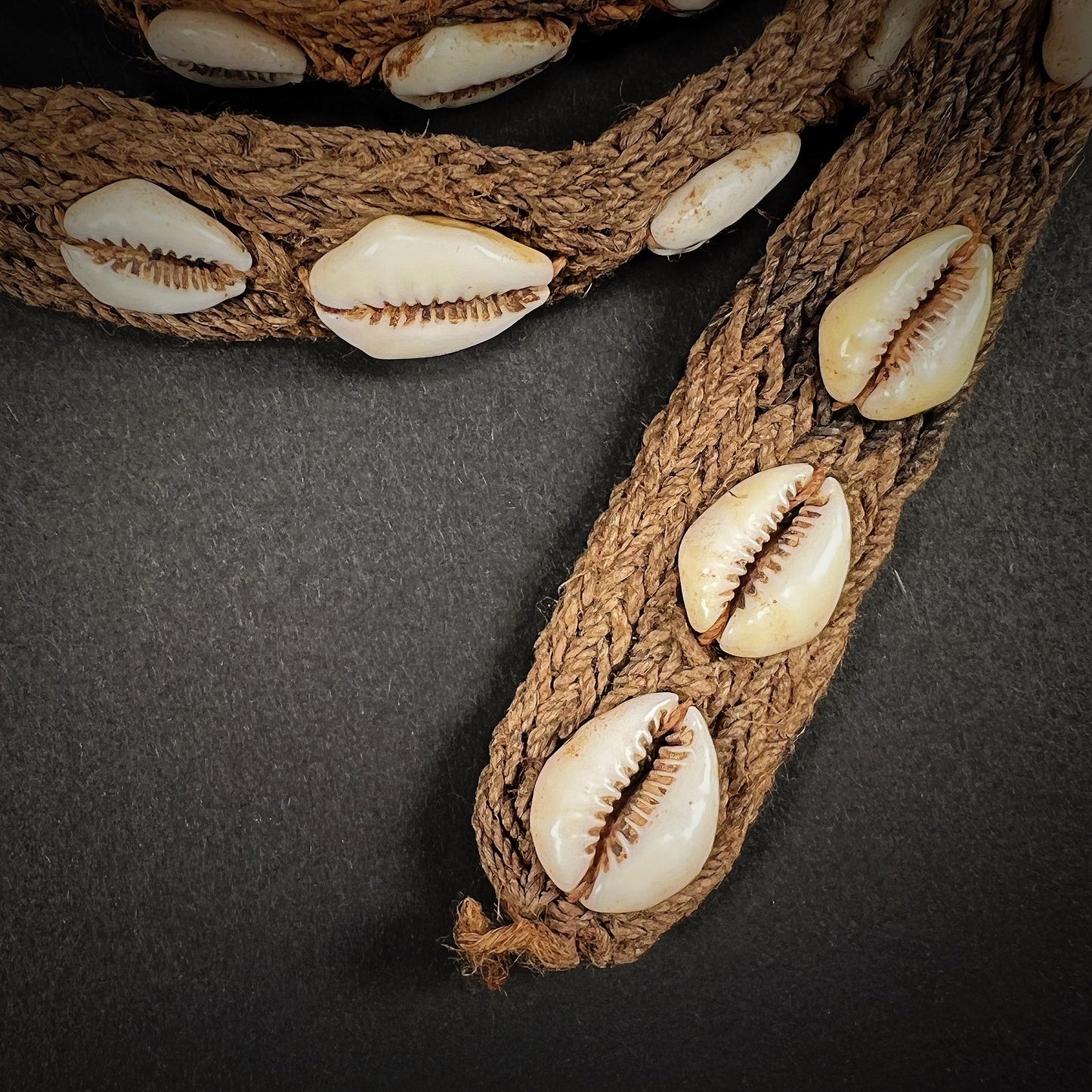
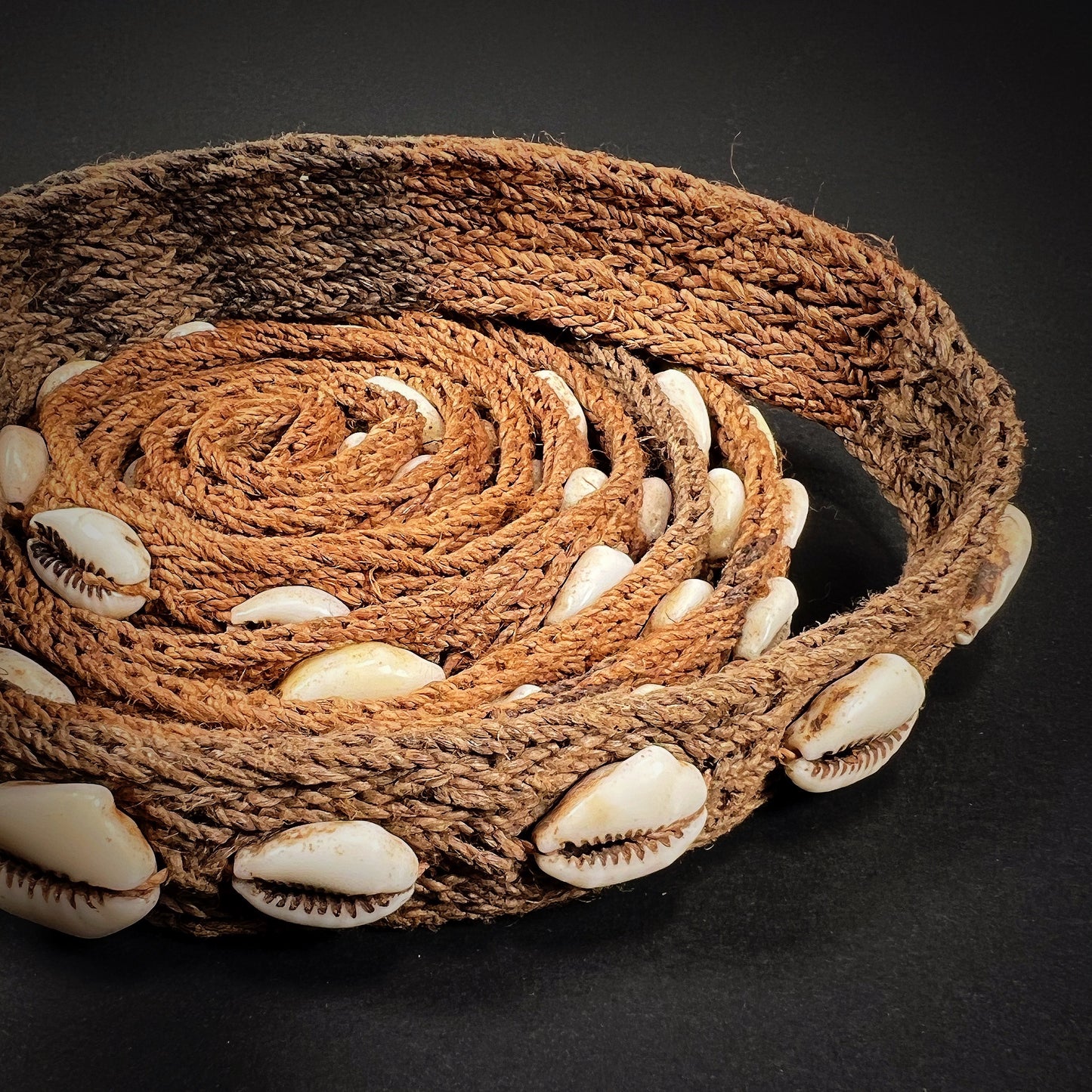
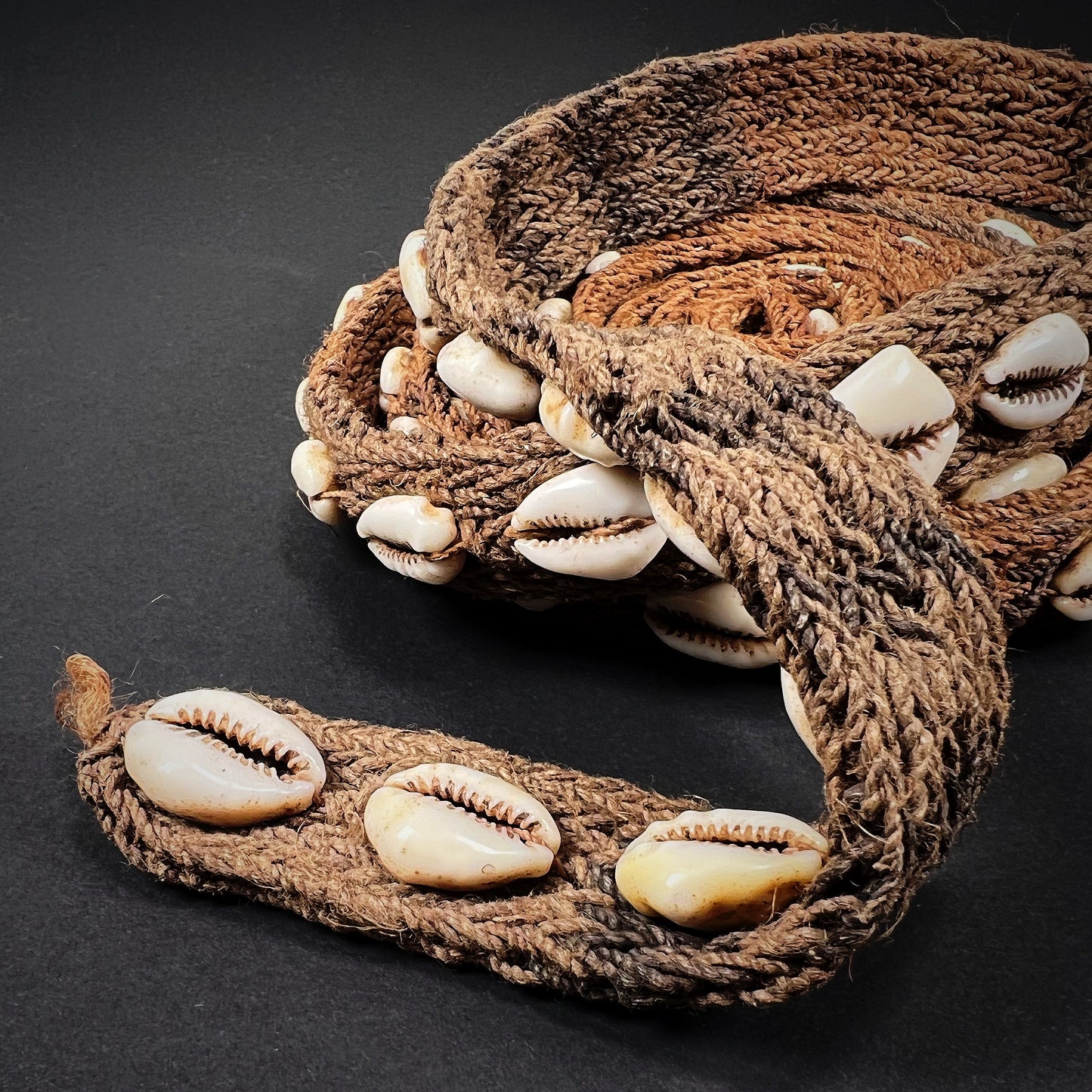
-
Shipping
The shipment will be prepared in the course of 3-5 days and dispatched via Posti Group Oyj or purchased item(s) can be picked up from our shop during the store's opening hours (Tarkk’ampujankatu 4, 00140, Helsinki, Finland). Within the Finland, all items are shipped via Posti Group Oyj unless otherwise requested. We pack the items carefully and mainly in recycled materials because we want to save nature. You will receive the tracking number for your items by e-mail.
-
Returns
Returns and exchange will be accepted within fourteen days (14) of receipt at the purchaser’s cost to include freight and packaging. Items must be returned in the same condition as when they were shipped, and will not be accepted if damaged or altered in any way. Please inform us via email (info@gotanmaailma.fi) or by calling +358408408352 before sending. We do not accept returns more than 14 days after delivery.
